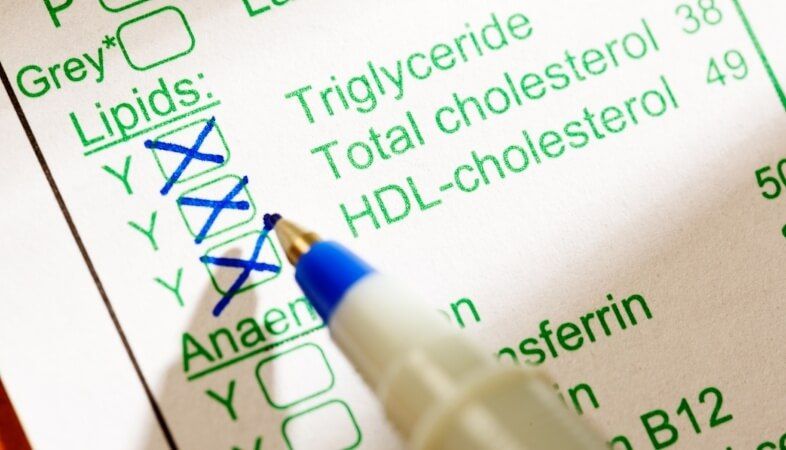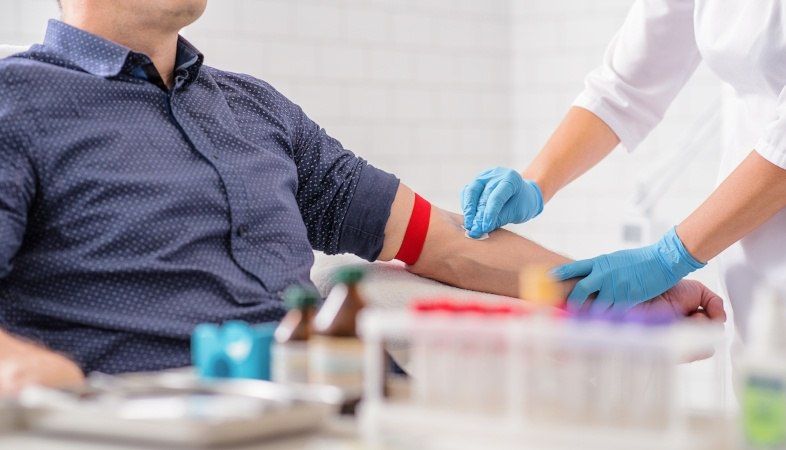
The science around cholesterol and what we know about how it interacts with populations and individuals has evolved. As we learn more about these complex systems and relationships, the guidance shared by medical professionals and the media hype surrounding it can appear contradictory and cause confusion.
You’ve likely heard at some point that “cholesterol is bad”, but is that really the case? Back in the 70s and 80s, it was assumed that high cholesterol foods, such as eggs and red meat, were unhealthy. Decades later, our understanding has changed and, as it turns out, some cholesterol is actually good for you. For many of us, this means that omelets and steaks are back on the menu.
With all the new and residual information out there, we’ve created this guide to “good” and “bad” cholesterol as a general overview. For specific information on your relationship to cholesterol, always check in with your physician. PartnerMD offers all patients an expanded physical that goes beyond just measuring your cholesterol level and explores a wider range of factors possibly including your DNA profile.
There are actually four different types of cholesterol: high-density lipoprotein (HDL), low-density lipoprotein (LDL), very low-density lipoprotein (VLDL) and intermediate low-density lipoprotein (ILDL).
HDL and LDL are the two most common types of cholesterol. HDL cholesterol is considered the “good” kind of cholesterol, while LDL cholesterol is considered the “bad” type of cholesterol.
In order to successfully manage your health, there are important differences you need to know about the “good” and the “bad” types of cholesterol.
High Density Lipoprotein (HDL) cholesterol is considered the “good” kind of cholesterol because high density lipoproteins protect the body by removing other cholesterols from your bloodstream.
HDL cholesterol is rarely impacted by your diet, but if your HDL levels are low there are two things you can do to improve your HDL numbers.

First, make sure you’re getting between 30 to 60 minutes of moderate exercise per day, optimally every day. Exercise has been shown to boost HDL levels.
Second, if you are a smoker, here is more evidence that it is time to quit. In addition to other health risks, smoking significantly lowers HDL levels.
On the other hand, a boost in Low-Density Lipoprotein (LDL) cholesterol can increase your risk of heart disease and stroke. LDL cholesterol is made up of different particles. Not only does the amount of particles play a role in your cholesterol health, but also the size of the particles. The smaller the particle, the more likely plaque is to build up and block arteries.
The good news is that LDL cholesterol levels can be lowered with a healthy diet. If your LDL levels are high, try eating a diet low in saturated fats and pump up your fiber intake.
Despite a genuine desire to improve cholesterol levels, many people struggle to make real and lasting lifestyle changes. Access to a registered dietitian and the accountability of a wellness coach can make a big difference.
Typically, a healthy LDL number is below 100. If you have diabetes or are at risk for developing the disease, a healthy LDL level is below 70.
For HDL cholesterol, the higher the number, the better. An ideal HDL number is anywhere around or about 60. Any number below 40 is considered a low HDL number.

If you have a family history of high cholesterol or have other risk factors, your doctor may want to do further testing. One common recommendation is advanced lipid testing, which measures the size and number of your cholesterol particles to better inform an action plan uniquely suited to you.
PartnerMD physicians take a preventive approach to managing cholesterol. We consider a variety of factors to assess your cholesterol risk and develop a custom plan of care. Our wellness team works closely with you over the course of time to help you reach optimum vitality.
Ready to learn more about the role of preventive health care in managing your health?
Topics: